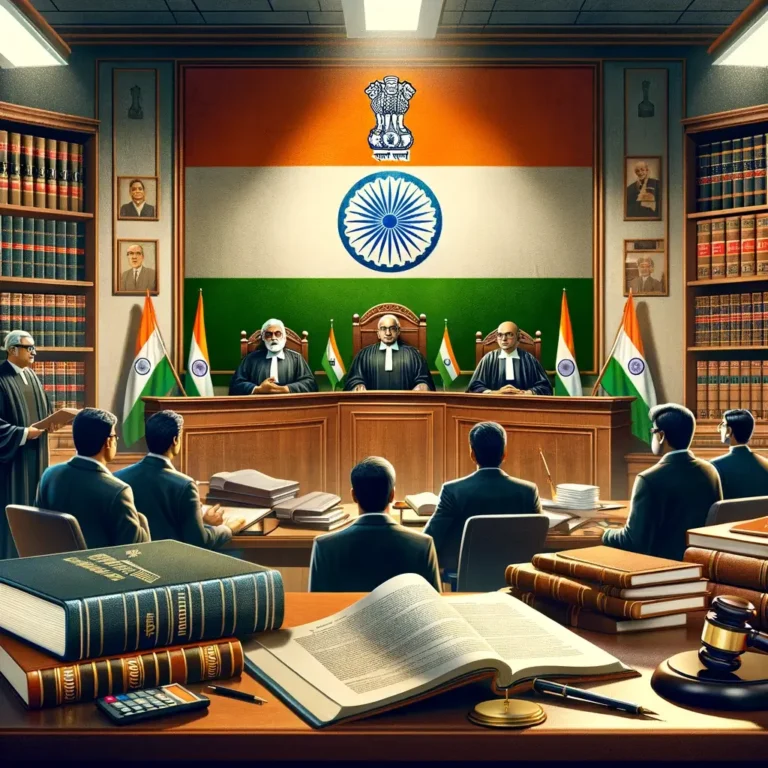Understanding Product Liability Laws for Defective Foods in India
Introduction to Product Liability in India
Product liability refers to the legal responsibility of manufacturers and sellers to ensure that their products are safe for consumption or use. When it comes to food, this becomes incredibly important as defective or contaminated food can lead to serious health issues. In India, the laws governing product liability for defective foods are designed to protect consumers and ensure that they receive safe and quality products.
The Legal Framework
Consumer Protection Act, 2019
The primary legislation that deals with product liability in India, including defective foods, is the Consumer Protection Act, 2019. This Act has introduced specific provisions related to product liability, making it easier for consumers to claim compensation for harm caused by defective products.
Food Safety and Standards Act, 2006
Alongside the Consumer Protection Act, the Food Safety and Standards Act (FSSA), 2006, plays a crucial role. It sets standards for food safety and regulates the manufacturing, storage, distribution, sale, and import of food products to ensure that they are safe for consumption.
Rights Under the Consumer Protection Act, 2019
Claiming Compensation
Consumers can claim compensation for harm caused by consuming defective food products. This includes any illness, injury, or death resulting from such products. The Act allows consumers to file a complaint against manufacturers, sellers, or service providers responsible for the defective product.
Product Liability Action
Under the Act, a product liability action can be brought against a manufacturer, seller, or service provider for any harm caused by a defective product or deficiency in services. This includes cases where there is a manufacturing defect, design defect, or a failure to provide adequate instructions for the product’s use.
How to File a Complaint
To file a complaint under the Consumer Protection Act, consumers need to:
- Gather evidence of the defect and the harm caused.
- File a complaint with the Consumer Forum, specifying the details of the case, the compensation sought, and any other relief desired.
- Provide necessary documents, such as medical reports (in case of illness or injury), purchase receipts, and any other evidence supporting the claim.
Preventive Measures by the Government
The Indian government has taken several steps to prevent the sale of defective food products. Regular inspections and monitoring of food manufacturing and processing units are conducted to ensure compliance with the FSSA standards. Additionally, consumer awareness programs are organized to educate people about their rights and the steps they can take in case they encounter defective food products.
Conclusion: Ensuring Safety and Accountability
The product liability laws for defective foods in India, primarily governed by the Consumer Protection Act, 2019, and the Food Safety and Standards Act, 2006, provide a robust framework for protecting consumer rights. These laws not only ensure that consumers can seek and receive compensation for any harm caused by defective food products but also emphasize the importance of accountability for manufacturers and sellers. By understanding their rights and the legal remedies available, consumers can help maintain a safe food supply and hold those responsible for negligence or misconduct accountable.
FAQs:Product Liability Laws For Defective Foods In India
1. What is product liability?
Product liability refers to the legal obligation of manufacturers and sellers to ensure their products are safe for consumers and free from defects.
2. Which law in India covers product liability for defective foods?
The Consumer Protection Act, 2019, and the Food Safety and Standards Act, 2006, primarily cover product liability for defective foods in India.
3. Can I file a complaint for food poisoning from a product?
Yes, if you suffer food poisoning from a defective food product, you can file a complaint under the Consumer Protection Act, 2019.
4. What kind of defects can lead to a product liability claim for food?
Defects can include contamination, foreign objects in food, improper labeling, and failure to meet safety standards.
5. Who can be sued in a product liability case for defective food?
Manufacturers, distributors, sellers, and even importers can be sued in a product liability case for defective food.
6. How do I file a product liability claim for defective food?
You can file a claim by lodging a complaint with the appropriate Consumer Forum, detailing the harm suffered and the defect in the product.
7. What evidence do I need for a product liability claim?
Evidence may include medical reports, the defective food product, receipts of purchase, and any other relevant documentation.
8. What compensation can I seek in a product liability case for defective food?
Compensation can include medical expenses, lost wages, pain and suffering, and punitive damages in severe cases.
9. Is there a time limit to file a product liability claim for defective food?
Yes, the Consumer Protection Act, 2019, typically requires claims to be filed within two years from the date of injury or discovery of the defect.
10. Can I claim product liability for expired food items?
Yes, if you were sold an expired food item that caused harm, you might have a claim under product liability laws.
11. Are there any exceptions to who can be held liable for defective food products?
Liability generally applies to parties involved in the production, distribution, or sale of the food product, but specific exceptions depend on the case’s circumstances.
12. Can a restaurant be held liable for serving defective food?
Yes, restaurants can be held liable under product liability laws if they serve defective or contaminated food that causes harm.
13. What is the role of the Food Safety and Standards Authority of India (FSSAI)?
FSSAI sets standards for food safety and quality, regulates food businesses, and ensures compliance with the Food Safety and Standards Act, 2006.
14. How can I report a defective food product to authorities?
You can report a defective food product to the FSSAI through their online portal or consumer helpline.
15. Do product liability laws in India cover online food sales?
Yes, online food sales are covered under product liability laws, and online retailers can be held liable for selling defective food products.
16. What is a ‘deficiency in service’ in the context of food products?
A deficiency in service refers to a failure to meet the standards of service or quality promised, including in the sale of food products.
17. Can I sue for emotional distress caused by defective food?
Yes, if you can prove that the defective food product caused significant emotional distress, it may be included in the compensation claims.
18. What is a class action lawsuit in the context of defective food products?
A class action lawsuit allows a group of people who have suffered similar harm from the same defective food product to sue the responsible party collectively.
19. How does the Consumer Protection Act, 2019, define a product manufacturer?
The Act defines a product manufacturer as anyone who makes or produces a product, including food products, and is responsible for its quality and safety.
20. What role do consumer rights organizations play in product liability cases?
Consumer rights organizations can provide guidance, legal advice, and support to individuals pursuing product liability claims for defective foods.
21. Can packaging defects lead to product liability claims for food products?
Yes, defects in packaging that compromise the food’s safety or lead to contamination can result in product liability claims.
22. How are imported food products regulated under Indian product liability laws?
Imported food products are subject to the same regulations and standards as domestic products under the Food Safety and Standards Act, 2006.
23. What happens if a product recall involves a food item I purchased?
If a food item you purchased is recalled, you may be entitled to a refund, replacement, or compensation if you suffered harm from the product.
24. Can I still file a claim if I don’t have the original packaging of the defective food product?
Yes, you can still file a claim, but having the original packaging can strengthen your case by providing evidence of the purchase and product details.
25. What is the significance of ‘best before’ dates in product liability cases for food?
‘Best before’ dates indicate the period during which the food product is expected to retain its optimal quality and safety. Selling food past this date can be grounds for a product liability claim if it causes harm.
26. Are there any specific regulations for labeling food products in India?
Yes, the Food Safety and Standards Act, 2006, includes strict regulations on food labeling, including listing ingredients, allergens, and nutritional information.
27. How does the Consumer Protection Act, 2019, address misleading advertisements for food products?
The Act prohibits misleading advertisements and provides for penalties for those who make or endorse misleading claims about food products.
28. Can legal action be taken for food products that cause allergic reactions?
Yes, if the product was improperly labeled without necessary allergen warnings, or if there was negligence in informing consumers about potential allergens, legal action can be taken.
29. How are food safety complaints investigated in India?
Food safety complaints are investigated by local health departments or the FSSAI, which may involve inspecting manufacturing facilities, testing product samples, and reviewing company records.
30. Where can I find more information on product liability laws and consumer rights in India?
You can find more information on the official websites of the Consumer Affairs Department and the Food Safety and Standards Authority of India (FSSAI), as well as through consumer rights organizations and legal resources.
















